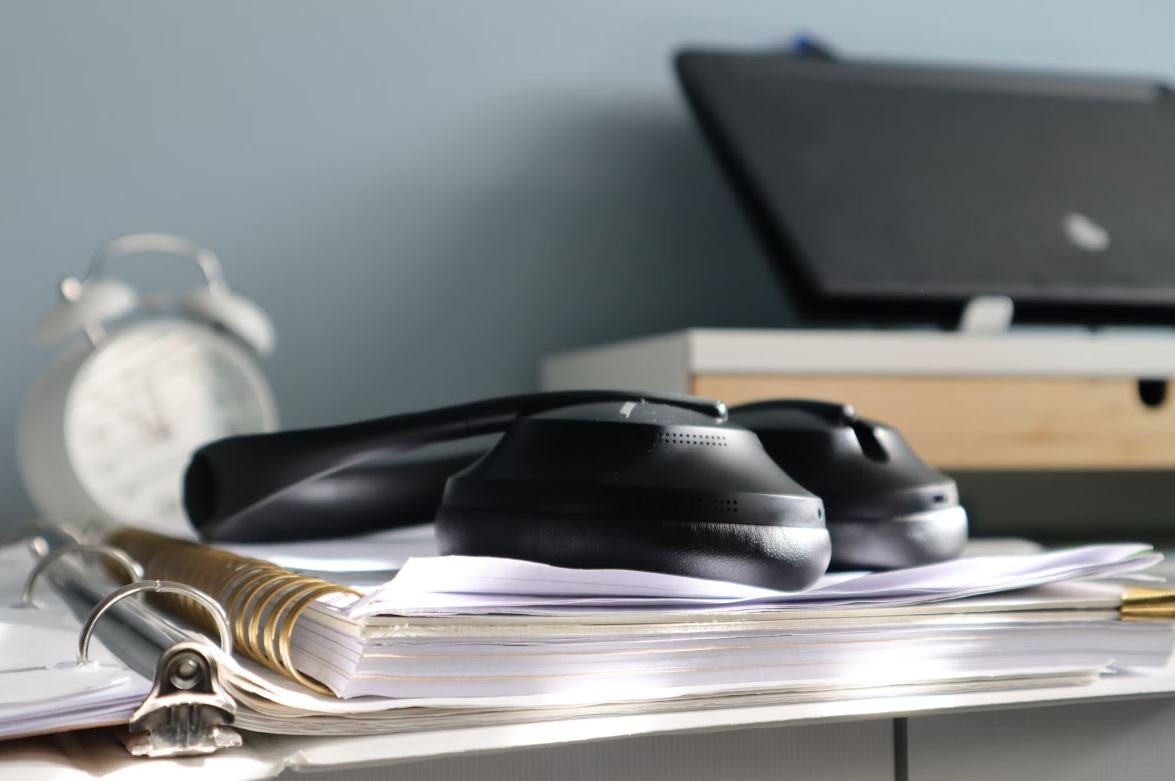Podcast Audio Mastering
Podcasting has become an increasingly popular medium for sharing information and entertainment. With the rise in podcast popularity, it’s important to ensure that your podcast audio is of the highest quality. Audio mastering plays a crucial role in enhancing the overall sound of your podcast, making it more enjoyable for your listeners.
Key Takeaways
- Podcast audio mastering improves the overall sound quality of your podcast.
- It enhances clarity, volume, and balance in the audio.
- Professional audio mastering can make your podcast stand out among others.
- Mastering involves a series of processes like EQ adjustments, compression, and audio sweetening.
The Importance of Podcast Audio Mastering
Podcast audio mastering ensures that your podcast sounds great across all devices and platforms. It involves various techniques and processes to optimize the audio quality and make it more appealing to listeners.
Mastering improves the clarity of speech in your podcast through **EQ adjustments**, ensuring that each voice is distinct and easy to understand.
Having clear and well-balanced audio is essential to engage your audience and deliver your message effectively.
Additionally, podcast audio mastering addresses issues like background noise, plosives, and other unwanted sounds, which can be distracting and reduce the overall quality of your podcast.
The Podcast Audio Mastering Process
Podcast audio mastering involves a series of processes that work together to enhance the sound quality of your podcast.
Firstly, **EQ adjustments** are made to balance the frequency spectrum of your podcast, ensuring that each element is properly represented.
EQ adjustments can help bring out the natural tones and improve the overall tonal balance of the audio.
Next, **compression** is applied to even out the dynamics of the audio, making softer sounds more audible and louder sounds more controlled.
Compression helps create a more consistent and balanced listening experience for your audience.
Finally, **audio sweetening** techniques are used to further enhance the audio quality. This may involve noise reduction, de-essing, and other processes to remove unwanted artifacts.
Audio sweetening can make your podcast sound more polished and professional.
Potential Improvements in Podcast Audio Mastering
| Issue | Potential Improvement |
|---|---|
| Inconsistent audio levels | Applying dynamic range compression to even out the volume levels. |
| Noise and background interference | Using noise reduction techniques to remove or minimize unwanted sounds. |
| Poor tonal balance | Applying EQ adjustments to bring out natural tones and balance the frequency spectrum. |
The Benefits of Professional Podcast Audio Mastering
While there are tools and software available for podcast audio mastering, seeking the expertise of a professional mastering engineer can yield even better results.
Here are some benefits of opting for professional podcast audio mastering:
- Experienced mastering engineers have a trained ear and extensive knowledge in the field.
- They use specialized equipment and software that can enhance your audio quality.
- Professional mastering can make your podcast stand out among the competition.
- It saves you time and effort, allowing you to focus on content creation.
Conclusion
Podcast audio mastering is a crucial step in delivering a high-quality listening experience to your audience. Through various techniques like EQ adjustments, compression, and audio sweetening, mastering enhances the overall sound quality of your podcast. Consider seeking the expertise of a professional mastering engineer to take your podcast to the next level.

Common Misconceptions
Misconception 1: Podcast audio mastering is only necessary for professional podcasts.
Many people believe that podcast audio mastering is only important for those podcasters who have a large following or are making money from their podcasts. However, audio mastering is essential for any podcast, regardless of its size or popularity.
- Audio mastering enhances the overall sound quality of the podcast, making it more enjoyable for the listeners.
- Even small podcasts can benefit from audio mastering as it can help eliminate background noise and other audio imperfections.
- Poorly mastered podcasts can give a negative impression to potential new listeners.
Misconception 2: Podcast audio mastering takes a long time and requires expensive equipment.
Another common misconception is that podcast audio mastering is a time-consuming process that requires expensive equipment and technical expertise. While professional audio mastering studios may have high-end equipment and specialized techniques, podcasters can achieve satisfactory results with accessible tools.
- There are various affordable audio editing software programs available for podcasters to use for mastering their audio.
- With online tutorials and guides, podcasters can learn basic audio mastering techniques without having to invest in costly equipment or hiring professionals.
- Podcast audio mastering can be a quick and straightforward process, especially once you become familiar with the necessary tools and techniques.
Misconception 3: Podcast audio mastering can fix any audio recording issues.
Some people mistakenly believe that podcast audio mastering can magically fix any audio recording issues, such as background noise, recording errors, or poor mic quality. While audio mastering can certainly improve the overall sound quality of a podcast, it cannot completely fix problematic audio recordings.
- Audio mastering can help reduce or eliminate some background noise, but it may not be able to fully remove it if the noise is too prominent.
- Poor mic quality and recording errors cannot be entirely fixed through audio mastering; they require proper recording techniques and better equipment.
- The key to good audio quality is to start with a clean and well-recorded audio source, and then use audio mastering techniques to enhance it further.
Misconception 4: Podcast audio mastering is a one-size-fits-all process.
Another common misconception is that podcast audio mastering follows a standardized process that works the same for every podcast. In reality, podcast audio mastering involves a unique approach for each podcast based on its specific audio quality and requirements.
- Every podcast has different recording conditions, microphone settings, and audio goals, which require tailored audio mastering techniques.
- Some podcasts may need more emphasis on voice clarity, while others may require more dynamic range for music or sound effects.
- Audio mastering professionals work closely with podcasters to understand their vision and goals for the podcast to create a customized audio mastering plan.
Misconception 5: Podcast audio mastering is only for fixing technical audio issues.
Finally, many people believe that podcast audio mastering is solely focused on fixing technical audio issues, such as background noise or volume inconsistencies. While audio mastering does address these technical aspects, it goes beyond that and also aims to enhance the overall listening experience.
- Audio mastering can improve the clarity of the podcast host’s voice, making it more engaging and easy to understand.
- It can add depth and richness to music or sound effects used in the podcast, enhancing the overall production value.
- Podcast audio mastering gives the podcast a professional and polished sound, creating a better impression on the listeners.

Table: Most Popular Podcast Platforms
According to recent data, here are the top five podcast platforms based on the number of active users.
| Rank | Platform | Active Users (in millions) |
|---|---|---|
| 1 | Spotify | 155 |
| 2 | Apple Podcasts | 115 |
| 3 | Google Podcasts | 75 |
| 4 | Podcast Addict | 50 |
| 5 | Stitcher | 40 |
Table: Podcast Listenership by Gender
This table showcases the breakdown of podcast listenership based on gender.
| Gender | Percentage |
|---|---|
| Male | 55% |
| Female | 45% |
Table: Top Podcast Genres
Explore the most popular podcast genres that keep listeners engaged and entertained.
| Rank | Genre |
|---|---|
| 1 | True Crime |
| 2 | News and Politics |
| 3 | Business |
| 4 | Comedy |
| 5 | Health and Wellness |
Table: Podcast Listener Age Distribution
Learn about the age distribution of podcast listeners and their preferences.
| Age Group | Percentage |
|---|---|
| 18-24 | 20% |
| 25-34 | 35% |
| 35-44 | 25% |
| 45-54 | 15% |
| 55+ | 5% |
Table: Benefits of Podcasts
Highlighting the advantages that make podcasts a popular medium for creators and audiences alike.
| Advantages |
|---|
| Accessible and Portable |
| Diverse Content |
| Engaging and Intimate |
| Highly Personalized |
| Multitasking-friendly |
Table: Podcast Advertising Revenue
Insights into the revenue generated through podcast advertisements in recent years.
| Year | Global Revenue (in millions) |
|---|---|
| 2016 | $167 |
| 2017 | $314 |
| 2018 | $479 |
| 2019 | $708 |
| 2020 | $1,132 |
Table: Length of Popular Podcast Episodes
Examining the average duration of episodes that captivate listeners.
| Duration | Percentage of Popularity |
|---|---|
| 30 minutes or less | 25% |
| 30-60 minutes | 50% |
| 60-90 minutes | 15% |
| 90 minutes to 2 hours | 7% |
| Over 2 hours | 3% |
Table: Podcast Conversions by Device
Understanding which devices are popular among users for podcast consumption.
| Device | Percentage of Conversions |
|---|---|
| Smartphone | 70% |
| Laptop/Desktop | 20% |
| Tablet | 7% |
| Smart Speaker | 3% |
Table: Top Podcast Countries
Identifying the countries with the largest podcast listener base.
| Rank | Country | Number of Listeners (in millions) |
|---|---|---|
| 1 | United States | 98 |
| 2 | China | 88 |
| 3 | India | 55 |
| 4 | Brazil | 45 |
| 5 | United Kingdom | 35 |
Conclusion
Podcasts have become an incredibly popular form of audio entertainment and information sharing. This article explored various aspects related to podcasts, including the most popular platforms, listener demographics, genre preferences, advantages, revenue, episode durations, device usage, and global reach. The data presented in the tables highlights key trends and statistics about the podcast industry. With millions of active users worldwide, podcasts continue to captivate audiences and offer a unique and personalized listening experience.
Frequently Asked Questions
Podcast Audio Mastering
Question 1
What is podcast audio mastering?
Question 2
Why is podcast audio mastering important?
Question 3
What equipment is required for podcast audio mastering?
Question 4
Can podcast audio mastering fix poorly recorded audio?
Question 5
What are some common techniques used in podcast audio mastering?
Question 6
How long does it take to master a podcast audio episode?
Question 7
Should I master my podcast audio myself or hire a professional?
Question 8
How can I find a reliable podcast audio mastering service?
Question 9
Can you undo podcast audio mastering once it’s done?
Question 10
How often should I consider remastering my podcast episodes?


Leave a Reply